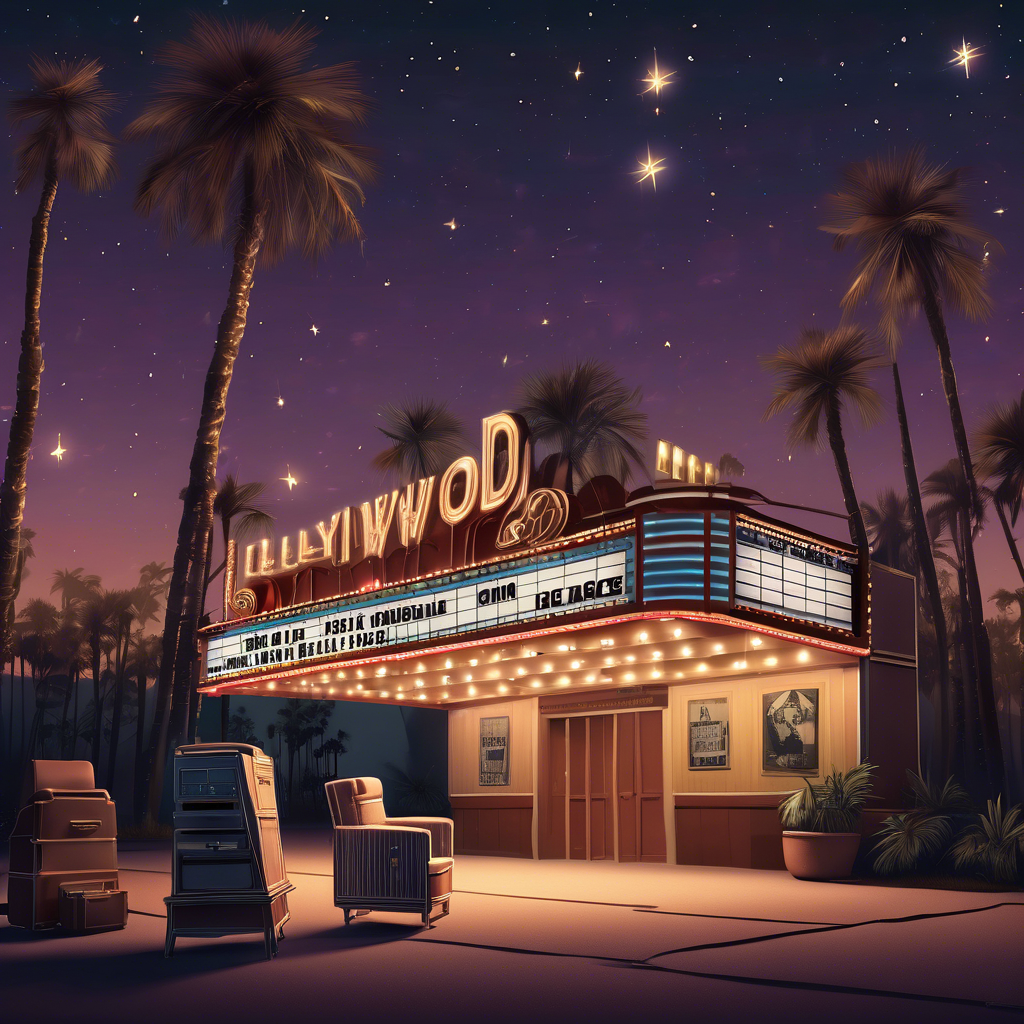
Throughout the vast and colorful history of cinema, movie stars have long basked in the limelight, becoming household names recognized by audiences worldwide. Their faces grace posters, billboards, and screens everywhere, forming emotional connections with moviegoers that range from instant infatuations to life-long fandoms. Names like Cary Grant, Audrey Hepburn, Paul Newman, Julia Roberts, and Tom Cruise evoke not only cinematic craftsmanship but also a certain charisma that transcends the roles they play. Directors, on the other hand, often work behind the curtains, their artistry subtly guiding the storytelling without the same immediate celebrity. Though a handful of iconic auteurs—Steven Spielberg, Tim Burton, Martin Scorsese—have broken through the barriers to public renown, this ascent often takes decades. For instance, Scorsese's journey to commercial prominence stretched nearly 30 years, emphasizing how audience recognition of directors has traditionally lagged behind that afforded to stars.
In recent years, however, this script seems to be flipping. The latest generation of directors isn’t just crafting films; they’re becoming dynamic public advocates for the traditional theatrical experience, especially crucial as the industry grapples with the seismic challenges posed by the COVID-19 pandemic and the accelerated rise of streaming platforms. Christopher Nolan stands tall among these pioneering figures, advocating vehemently—as early as 2020—for theaters to reopen despite the prevailing health risks. His blockbuster *Tenet* became a cultural flashpoint, initially criticized for pushing public safety boundaries but later celebrated for reigniting passion for the immersive theatrical spectacle. An IMAX re-release of *Tenet* capitalized on safer times, proving that large-format cinema still holds undeniable allure. This theatrical vindication echoed through the film’s companion, *Interstellar*, which saw a similarly enthusiastic reissue, reinforcing Nolan’s reputation as a true visionary who understands that some stories are best told on the grandest possible screen.
Parallel to Nolan's crusade stands Ryan Coogler, a director who has swiftly risen to mainstream acclaim without sacrificing critical respect. His stewardship of *Black Panther* not only shattered box office records—outgrossing cult classics like *The Dark Knight*—but also broke cultural barriers, landing a Best Picture nomination that signaled Hollywood’s growing embrace of diverse storytelling. Coogler’s subsequent original work, *Sinners*, has further cemented his status, becoming the highest-grossing original movie since Pixar’s *Coco* and potentially the biggest live-action original since Nolan’s *Inception*. Displaying a savvy understanding of theatrical exhibition, Coogler embraced a variety of viewing formats, including limited but prestigious runs on 70mm IMAX. His outreach extended beyond box office results: a warm, informative social media video guide demystified the viewing options for audiences, signaling a director tuned perfectly to both high art and high tech, understanding that cinema’s future may well rely on preserving its analog grandeur even as digital innovations expand horizons.
Yet the drive to preserve and resuscitate the theater-going experience isn’t limited to massive summer blockbusters. The indie film world, embodied by fresh Oscar winner Sean Baker and distributors like Neon and A24, champions a slower, more respectful rollout strategy that cherishes theaters as a vital cultural space. Baker, known for his intimate storytelling and innovative style, openly declared that his films were crafted specifically for the cinematic environment, discouraging the trend of digital-first or streaming-exclusive releases. These indie powerhouses have resisted the industry-wide pressure to truncate theatrical windows, ensuring fans have an opportunity to see films on the big screen before they migrate online. Their approach pays dividends: four of the top ten hits from both Neon and A24 over the past year premiered under this traditional release strategy, proving that audiences still value the shared experience that theaters uniquely offer. It’s a testament to the enduring power of cinema as a communal ritual, even amid a fragmented streaming revolution.
Connecting these artistic and distributional efforts is none other than Tom Cruise, arguably the most beloved and recognizable movie star of our time, who has positioned himself as an unofficial ambassador for theatrical cinema. His connection to the medium is genuine and unmistakable—seen masked-up at an IMAX screening of *Tenet*, promoting *Sinners* despite having no creative role in the project, and vocally championing the commitment to large-format, high-technical-standard filmmaking in interviews for *Mission: Impossible – The Final Reckoning* and *Top Gun: Maverick*. Cruise’s passion for preserving the theatrical spectacle resonates uniquely because it underscores a deeper affection for the ritual of cinema-going. While other stars might hail from the comfort zone of their on-screen roles, Cruise transcends this by actively championing the movies at every stage—from production to exhibition. This fervor, while drawing comparisons to the nearly religious fan followings of pop icons like Taylor Swift, reinforces an important cultural point: the communal movie theater experience is not only viable but vital in a digital age dominated by at-home consumption.
What these “Champions of Cinema” collectively illustrate is a nuanced evolution of cultural guardianship in the entertainment world. Unlike the sometimes dissonant voices appointed through political patronage or the corporate homogenization of film franchises, directors like Nolan, Coogler, Baker, and stars like Cruise espouse an authentic, audience-centric vision rooted in spectacle and storytelling craft. Their efforts blend capitalist zeal with artistic purity, advancing a cinephile passion that embraces both the economic realities of the industry and the spiritual fulfillment of film lovers. As Hollywood continues to navigate an era of streaming dominance, brand ubiquity, and shifting audience habits, this alliance of auteur and star power may well represent cinema’s best hope to reclaim its distinct identity. In other words, these figures aren’t merely saving theaters—they’re reinvigorating cinema itself, proving that in a world cluttered with choices, the collective magic of seeing a film on the big screen remains irreplaceable.
#CinemaRevolution #TheatricalExperience #ChristopherNolan #RyanCoogler #TomCruise #IndieCinema #MovieMagic
Leave a Reply